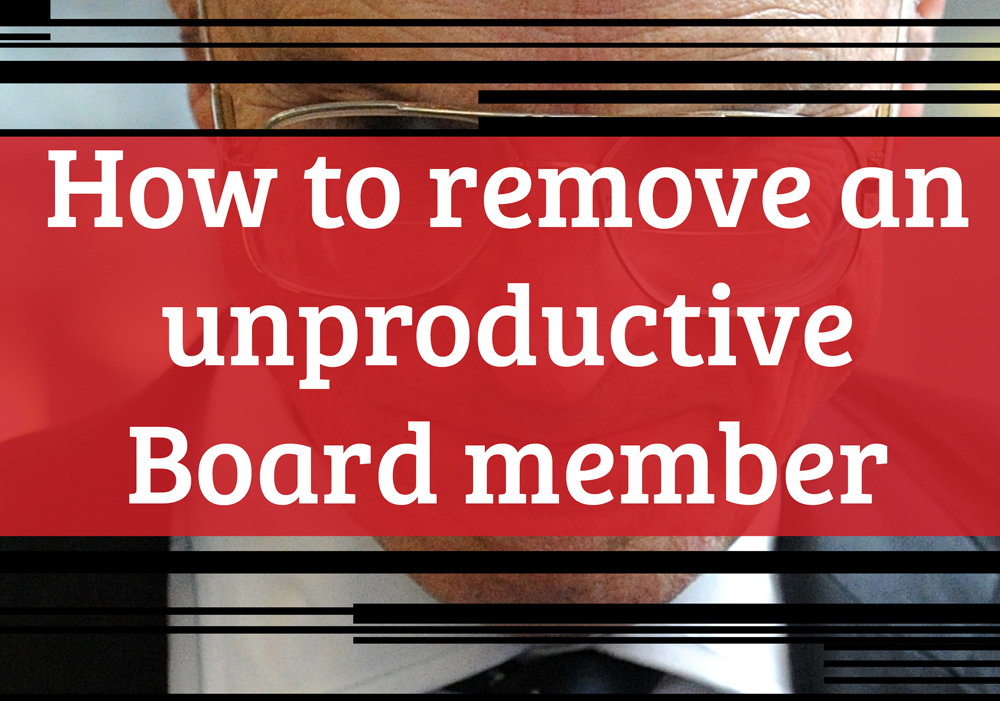A lesson from the trenches
Have you ever had the situation where Board members have tried to directly instruct staff, or have questioned senior management decisions outside of the Board meeting, or have taken partial control of staff functions?
Have you viewed this as appropriate and advantageous to the organisation, or disruptive, annoying and interfering? Or maybe even both?
We come across this quite often when we are working with nonprofit Boards and senior executives. We have had late night telephone calls from Directors regarding their concern about management techniques, asking advice about what the Director should do if management isn't doing what the Director expects.
We have had emergency meetings with CEOs when they are ready to resign because a Board member has been "interfering". We have seen numerous emails where senior executives complain bitterly about the Board becoming involved in "operational" matters. We have talked with many Boards about their concern that management is not managing. And the list goes on.
There is not always a clear case of inappropriate interference by the Board or Board members
On the one hand, Directors have the right to access everything that goes on in the organisation (with some exceptions mainly related to privacy laws), as in the end, the Director is ultimately responsible. It is also appropriate, prudent, and necessary that a Board member take an interest in the operations and management of the organisation, and that they have conversations with staff and ask questions outside of Board meetings.
On the other hand, the Board members are not staff, and have not been retained to develop operational implementation of strategy. Board members seldom have the specific skill sets required to implement the operational strategies, which is why skilled staff have been hired.
So, what can be done to satisfy the Directors' need for knowledge and accountability, and the executive leadership and staff’s need for operational autonomy?
The most common causes for these types of situations revolve around Directors and staff who do not understand the rights and responsibilities of Directors. Directors have no specific rights as individuals, other than to receive all Board information, attend all Board meetings, and have access to past Board papers for up to seven years after they have left the Board. They have no individual power to tell staff what to do, including the CEO. The power comes from the collective nature of the Board as a whole, not individual Directors.
The Board can direct, but individual directors can not
We have also been involved in situations where staff were using the well-tried strategy of "That's operational, nothing to do with the Board, stay out of it". This is used sometimes to ensure that Directors are not asking embarrassing questions, or are not getting too involved in what is seen as the domain of the executive leadership
Strategies to strike a balance between a director's right to know and staff's right to be held to account for performance
1. Have a Board charter that specifies these relationships. The best Board charters include sections such as Purpose of Charter, Purpose of Board, Roles and Responsibilities of Directors, Membership and term of Board , Relationship of Board and CEO, Board culture and Reporting Requirements. Ensure that all Board members and staff have a copy. (Board Charter Example)
2. Have a Standards of Conduct document for Board members that specifies their personal standards as Directors. This forms the basis for any discussion to be had regarding an individual Directors behaviour. (Standards of Conduct example)
3. Ensure that the strategic plan is the filter behind the Board decisions, and that Directors use the strategic plan as their main guidance for decisions and conduct at and between Board meetings. Make sure staff work in this manner, and any approach by a Director to a staff member is in context of the strategic plan (this assumes you have one).
4. Conduct Board evaluations, where Directors rate themselves, the Board and their fellow Directors. This is extremely effective in identifying rogue directors, and can provide peer advice to that director.
5. Develop in-camera sessions of the Board, where the Board meet without any staff, and these types of issues can be discussed without staff present. In this case, the chair should raise this as an issue and reiterate the role of the Director
6. Instruct all staff that if a Director approaches them, that the staff member report to the CEO or senior executive. The staff member then instructs the Director that they will pass the request on to the CEO.
7. Directors have the right to conduct independent investigations and seek knowledge outside of the Board room, but they have no right to instruct staff in any manner. Remind the Board member of this. The internal audit or compliance committee may useful for this.
Have you encountered a situation where a Director was acting outside his responsibilities? Let us know in the comments below.



